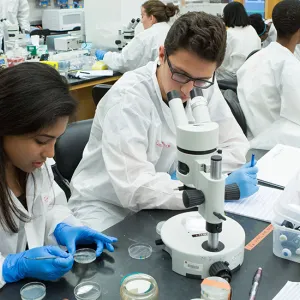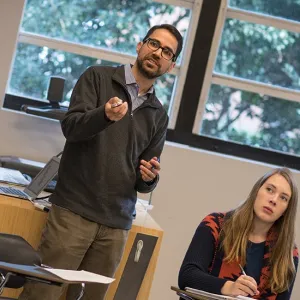Sexual violence isn’t confined to college campuses. It makes sense, then, that prevention and providing services to victims involve the broader community, too.
Following up on recommendations of its Sexual Assault Prevention and Education Center, the University of Kansas established memorandums of understanding with the Sexual Trauma & Abuse Care Center and the city of Lawrence in 2015 and is in the process of formalizing an MOU with the Metropolitan Organization to Counter Sexual Assault, near the university’s campus in Edwards.
KU has collaborated for years with the Sexual Trauma & Abuse Care Center to provide programming and services to the KU community. The MOU formalized and built on the previous commitment to improve services for victims and training for personnel.
Likewise, the MOU with Lawrence formalized an existing partnership and refined and strengthened the ways the university and city law enforcement work together to address incidences of sexual assault and the topic of sexual violence among students and the community.
Coming together around this topic was very valuable, said Tim Caboni, then vice chancellor for public affairs, in an announcement about the MOU. “KU learned a lot about how LPD investigates and handles instances of sexual violence, and LPD gained a better understanding of KU’s federal obligations under Title IX and the Clery Act. So together, we all have a better understanding and appreciation for each other’s roles and responsibilities as they relate to sexual violence.”
Both MOUs include specific sections on information sharing and confidentiality, as will the agreement with the Metropolitan Organization to Counter Sexual Assault.
KU researchers are further broadening the university’s collaborative efforts through the Heartland Sexual Assault Policies & Prevention on Campuses Project. The project received a three-year $750,000 grant from the US DDepartment ofHealth and Human Services in 2016 to help colleges and universities in three states adopt sexual assault policies and prevention strategies. The Heartland Project uses a regionally focused, gender-centered public health framework to aid sexual violence prevention in post-secondary schools in Kansas, Missouri, and Nebraska.



